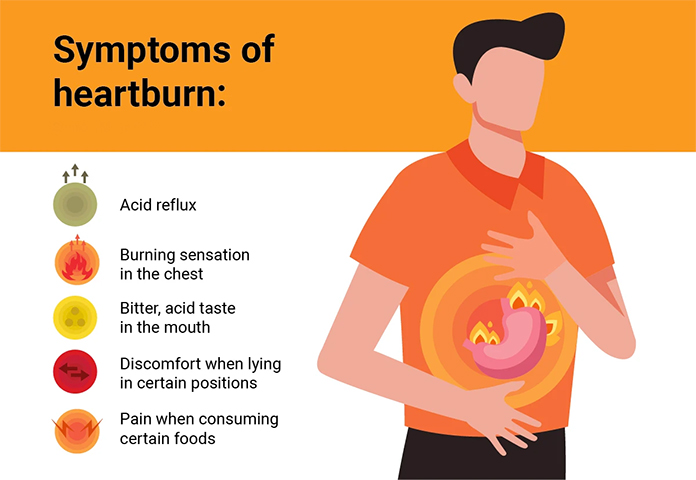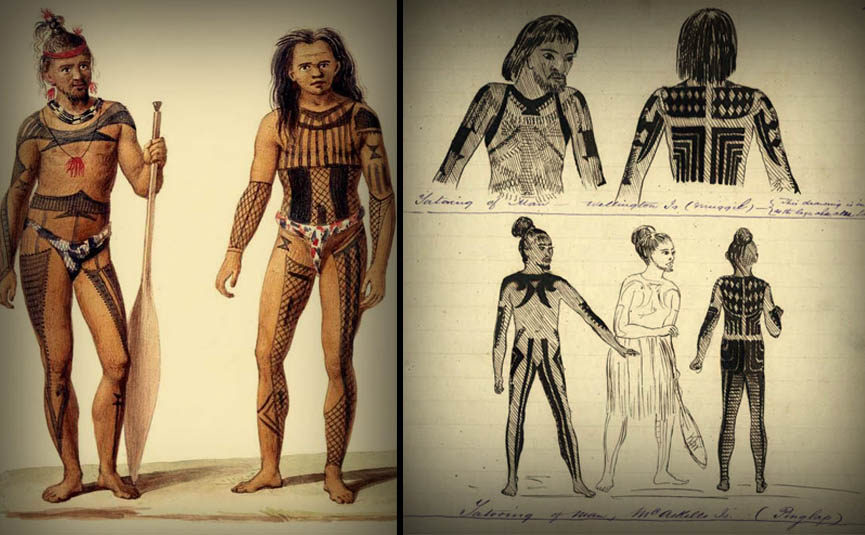After you’ve finished your delicious meal, your body is meant to take care of the rest of digestion. However, the unpleasant sensation of your last bite returning to your throat and the uncomfortable, even painful, burning sensation in your chest indicate that heartburn has arrived. So, let’s discuss what you can do to relieve that uncomfortable feeling.
Heartburn, acid reflux, and indigestion are words that are commonly used to describe upper digestive problems that aren’t caused by an ulcer. Acid reflux and indigestion symptoms include trouble swallowing, feelings of pressure or heaviness after eating, sensations of bloating after eating, and stomach or abdominal aches and cramps, in addition to heartburn.
Causes and Symptoms of Heartburn
The passage of stomach fluids up the oesophagus causes heartburn and other acid reflux symptoms, which manifest as a burning sensation that extends upwards and is exacerbated by reclining down. Heartburn can be caused by a variety of reasons. The main culprits are foods that are acidic or rich in fat, such as citrus fruits, tomatoes, onions, chocolate, coffee, cheese, and peppermint. Distress can also be caused by spicy foods or big meals.

Medications for high blood pressure, such as antidepressants, hormones, antibiotics, chemotherapeutic agents, and bisphosphonates, can also induce reflux as well as so-called mechanical causes, such as a hiatal hernia, pregnancy, or obesity. The unifying thread among these variables is that they all reduce the tone of the lower oesophageal sphincter. Symptoms are usually the most severe while a person is lying down.
Symptoms generally appear within minutes of eating and might last for hours or minutes. A foul taste in your mouth, coughing, or hoarseness may accompany the burning in your chest. You could also feel as though food is “stuck” in your throat. Many people’s heartburn is worse when they lie down or bend over since these motions allow stomach acid to flow more freely into the oesophagus.
Common Relief Treatments for Heartburn
When heartburn occurs, it might be tough to know what to do. With so many over-the-counter (OTC) therapies, herbal or other natural cures, and prescription medicines accessible, selecting the appropriate solution can be a challenge.
The Safest Bet Is Over-The-Counter Heartburn Medication
Over-the-counter heartburn medication is the easiest route for relieving heartburn symptoms. Medicine for acidity and heartburn is easily available at local pharmacies and even online chemist sites. However, if taking pills isn’t enough, talk to your doctor about what other lifestyle modifications could help you. Your doctor may want to check to determine if your symptoms are caused by gastroesophageal reflux disease or GERD.

Antacids sold over-the-counter are the first-line medicine for acidity and heartburn. They aid in the neutralisation of stomach acid, which is producing discomfort. Antacids are often quick-acting. If the over-the-counter version does not work, your doctor may prescribe a prescription-strength version.
H2 blockers operate by decreasing the amount of acid generated by the stomach to alleviate and prevent heartburn. They often begin working within one to three hours and offer acid suppression for several hours. Because acid reducers may interfere with other medications, if you are taking a prescription drug, consult your doctor or pharmacist before using.
OTC proton pump inhibitors treat recurrent heartburn and are not meant to provide quick relief, since full action may take one to four days. Prescription PPIs, on the other hand, are used to treat diseases such as gastroesophageal reflux disease, stomach and small intestine ulcers, and oesophagal inflammations. PPIs operate by lowering the quantity of stomach acid generated. Because acid reducers may interfere with other medications, if you are taking a prescription drug, consult your doctor or pharmacist before consumption. OTC PPIs are only meant for a 14-day course of therapy and can only be taken three times per year.
To various degrees, all of these over-the-counter medications can alleviate the symptoms of heartburn. Call your doctor if you have more severe heartburn symptoms that these drugs don’t relieve, or if you’ve been using these medications for more than 2 weeks. You may require a stronger prescription medication as well as testing to determine what is causing your symptoms.

At-Home Cures for Heartburn
While there are over-the-counter and prescription medications available that can help to alleviate the symptoms of heartburn, lifestyle modifications and other alternative options can occasionally benefit individuals who only have periodic acid reflux. Losing excess weight, eating smaller meals, and staying away from alcohol and nicotine can also help with your acid reflux. However, while attempting to relieve symptoms, try some of these commonly found items at home that might also be beneficial.
Baking Soda
Baking soda is the one prominent aid for heartburn that you can easily find in your kitchen cabinet. Baking soda can help relieve heartburn by neutralising gastric acid. Baking soda, or sodium bicarbonate, is widely accepted by health practitioners to be beneficial in giving brief, intermittent relief of acid reflux. It works because it has an alkaline pH, which helps to neutralise the acidity in your stomach, much like many over-the-counter antacids.
In order to protect your intestines, your pancreas naturally generates sodium bicarbonate. The effects of this mechanism are considered to be mimicked by baking soda. Sodium bicarbonate, as an absorbable antacid, rapidly neutralises stomach acid and temporarily reduces acid reflux symptoms.

Bananas
This low-acid fruit can aid individuals suffering from acid reflux by covering an inflamed oesophagus lining and therefore alleviating the discomfort. Bananas, due to their high fibre level, can also help improve your digestive tract, which can help prevent indigestion. Pectin, a soluble fibre present in bananas, aids in the passage of stomach contents through the digestive tract. So that’s a good thing because food that lingers will continue to produce acid.
Essential Oils
Aside from the various health advantages provided by essential oils, little is known about essential oils’ ability to alleviate heartburn. The easiest approach to use essential oils to cure heartburn is to inhale the smell directly from the bottle or a diffuser. If you’re using a diffuser, put two or three drops in the steam pocket of the device. When you turn on the gadget, the warm water will distribute the oils. If you don’t have time to set up a diffuser, take a deep inhale while hovering over a few drops on a linen napkin or towel.















